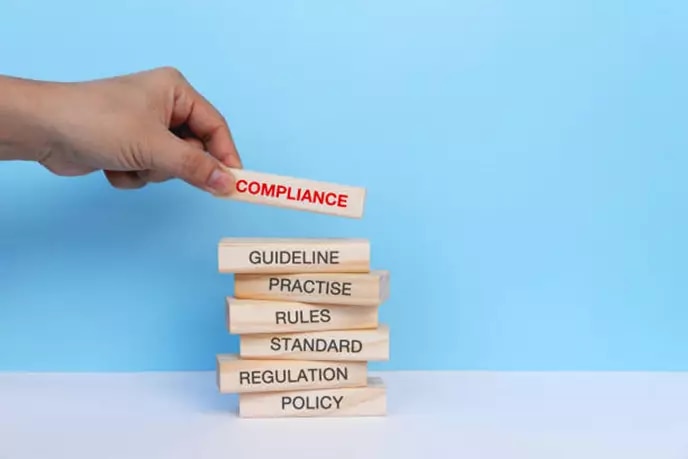Registering a Company in Singapore - Everything You Need to Know

Have you ever considered operating a business in Singapore? This article covers important information about establishing a company and conducting business in Singapore, including the regulations, processes, and timelines.
Article Overview:
- How to start a business in Singapore
- How long does it take to register a company in Singapore?
- Cost of registering a company in Singapore
- How can a foreigner register a company in Singapore?
- Essentials for registering a business in Singapore
- Useful business registration tips
- Company structure in Singapore
- Timeframe for Company Registration
- Post Registration
- Ongoing Requirement
- Tax benefits of registering a company in Singapore
- Why start a business in Singapore?
How to start a business in Singapore
1.Choose a company structure that works best for you
2.Register your firm with the Singapore Company Regulator ACRA, visit here
3.Open a corporate bank account for your organisation, get more info
ACRA's role in Singapore
The Accounting and Corporate Regulatory Authority (ACRA) is a statutory board under the Singapore Government's Ministry of Finance that regulates accounting practices. The Accounting and Corporate Regulatory Authority is an independent regulatory agency set up to administer the accounting, auditing, and corporate finance laws in Singapore.
How long does it take to register a company in Singapore?
The time required to establish a new firm can range from a few hours to days. When employing a company secretary, the timeline is largely determined by how quickly each shareholder and director can submit to the company secretary their own papers for verification such as proof of identification and home address.
Costs to a register company in Singapore
Servcorp provides a one-stop-shop solution with tailored service packages for businesses looking to establish themselves within Singapore.
A Servcorp Address Package also allows you to position your business with a quality image when you incorporate with one of our five 5-star CBD addresses in Singapore, including mail and courier management.
How can a foreigner register a company in Singapore?
If you are a foreigner, you may not be aware of the restrictions in Singapore. To understand each and every process can also take up a lot of time so to avoid the hassle, you are advised to hire a company secretary firm like Servcorp to register your business in Singapore and also provide virtual office services.
The essentials for registering a business in Singapore
Business name: Store a few names in case your first choice is already taken.
1 or more directors: Directors must be individuals, aged 18 and above, who have not been disqualified to hold a directorship in Singapore or elsewhere.
1 or more resident directors: At all times you will need at least one locally resident director. At the time of company registration this is someone who is a Singapore citizen, Permanent Resident, or holder of an EntrePass visa.
Between 1 and 50 shareholders: A shareholder can be an individual or a legal entity such as a trust or another business. Singapore allows 100% foreign ownership in local firms.
Paid-up capital: The minimum paid-up/share capital for a company to register in Singapore is S$1. After business registration, the share capital can go up at any time.
A registered address in Singapore: The company address in Singapore must be provided. It must be a physical address and a P.O. Box will not be accepted.
Appoint a Company secretary: This is mandatory for every company. This individual will help the directors to prepare and file all necessary documentation to keep the company compliant.
Auditor: An auditor is someone who examines and reports on the company's financial records. Unless the firm has been exempted from audit (which is typical for start-up businesses), it must do so within three months of registration.
Useful Tips when registering a business:
Company Name: See tips for choosing your business name
Tax Incentives: View tips of Singapore Corporate Tax System here
Business Activity Classification: See the most common used codes
Licenses & Permits: View the business license portal here. See information on licences and ACRA guidelines
Insurances: Find the most common Insurances that you may need
Company structures in Singapore

1.Private Limited Companies (Pte Ltd)
A private limited company (PTE LTD) is the most scalable, advanced, and adaptable of all Singaporean business structures. It's the most prevalent form of business in comparison to a limited liability partnership (LLP) or sole proprietorship (SP).
A private limited company is one that (a) has less than 50 shareholders and (b) isn't available to the general public. Other firms, individuals, or a combination of both can be shareholders of a private limited company.
2.Sole proprietorships (SP)
This kind of firm has a lot of benefits, but it also comes with more risk for the owner since he or she will be personally responsible for his or her company. Only Singapore citizens, Singapore permanent residents, and EntrePass holders are eligible to create a sole proprietorship.
The owner's personal assets are not insulated from the company's debts and hazards. Unlimited liability is borne by the owner. This implies that if your firm is unable to repay a debt, its creditors can also target your assets as well as that of the business. This is not advised for entrepreneurs looking to start a new business venture.
Consider the below before entering into a Sole proprietorship (SP)
- Only Singaporeans, permanent residents, or entrepass holders may use a National Registration Identity Card to obtain the photo.
- There is no separate legal personality for the company, and the owner is personally responsible for it.
- Profits are taxed at personal income tax rates, which means they are not eligible for any tax benefits.
- There is no such thing as perpetual succession and non-transferable ownership.
- Hiring staff and expanding globally is more difficult.
- Small neighbourhood businesses or hobby eCommerce vendors frequently employ it.
3.Limited liability partnerships (LLP)
A business entity is one that combines characteristics of corporations and partnerships. An LLP is the most sophisticated and up-to-date type of business structure, in which the individual partner's personal responsibility is typically limited. An LLP is a business entity that is created and maintained by its members, which include two or more people or a body corporate.
An LLP, often known as a professional partnership, is an organisation established by two or more individuals who work in the same field to collaborate and form a company. The income is taxed at personal income tax rates if the partner is an individual, but it is taxed at company income tax rates if the partner is a body corporate. There needs to be an agreement established by the owner of the LLP on how the profits will be split.
Consider the below before entering into a Limited liability partnerships (LLP)
- Only citizens of Singapore, permanent residents, or entrepass holders can purchase it.
- Between 2 and 20 partners, a Limited Liability Partnership must be registered.
- Profits from a business are taxed at personal income tax rates, with no access to tax incentives.
- Partners are personally responsible for the firm's liabilities and debts.
- Commonly utilised by law firms to limit liability for partners on multiple transactions.
Things to consider if you're a foreigner:
- Invest in getting some set up assistance in Singapore. To properly register your Singapore company, you must engage a professional to perform the task for you. A foreign individual or entity is unable to self-register a firm in Singapore.
- You don't need to travel or get a visa to start your business. If you want to incorporate your Singapore business but don't intend on relocating, you won't need a special travel visa. You can run your firm from overseas and visit Singapore on a short-term visitor visa when you need to address company concerns.
- You'll likely need to appoint a director nominee. If you are not planning to have anyone in your company move to Singapore, you will still need to fulfil the requirement to have a local director. You can easily find a professional service firm in Singapore that offers business services including Servcorp.
- Be prepared to travel to start up a corporate bank account. Depending on the bank that you choose, many banks in Singapore demand that directors and/or shareholders physically attend in order to approve the opening of a bank account. We have a network of bankers who can assist with this - it's typically a straightforward procedure. Find out more information about opening a Singapore bank account here.
Timeframes for Company Registration:
Once you've gathered all of your papers, a firm can be formed in one to three business days, as long as you have all of your paperwork completed and ACRA does not cause any delays. Continue reading to learn how to form a company in Singapore using ACRA.
There are two stages to forming a company in Singapore: securing a name and then registering the business.
1. Securing the company name
To register a company in Singapore, you must obtain ACRA's approval for the name you want to use. Typically, you will find out whether your suggested name has been accepted or rejected within a day. However, if your proposed name contains specific terms such as media, bank, law, finance, or education, the relevant external government body will be obliged to examine and approve it
The name of your firm will be held and secured for 60 days after your application is accepted. You may extend the name reservation for another 60 days by submitting an extension before the original hold expires if you need to keep it longer.
Once you've gotten the green light for your name, the paperwork and ACRA approval can be completed in a day if all of the papers are prepared and signed by all board members of the new firm.
Post-Registration
- Your Business Registration will arrive in the mail. ACRA will send you an email notification acknowledging your company's registration. This is your official Singapore Company Incorporation Certificate, which includes your business registration number. If you want a hard copy of the certificate, you can make an online request to ACRA for S$50.
- You'll be granted a Business Profile (”Bizfile”). You'll be provided an ACRA business profile of your new company complimentary. The business profile is the company's identity card.
- You are eligible to set up a corporate bank account. You may open a corporate bank account with any of the banks in Singapore after you've successfully registered your Singapore business.
- Apply for a Business License. You may be required to apply for business licenses depending on your business operation. You can complete this process after registering your company and before commencing business activities.
- Goods and Service Tax (GST) Application. If your company's annual turnover is expected to exceed S$1 million, you must register for Goods and Services Tax (also known as value added tax, VAT, or in many countries). You are not required to register for GST if you do not anticipate your organisation's annual turnovers to reach S$1 million. See here to learn more about GST in Singapore.
Ongoing Requirements
Once you have officially incorporated your Singapore business, the Companies Act requires specific annual filing requirements to be made. If you’re not Singaporean and you want to have a hassle-free experience, you might want to consider hiring a professional company secretary.
The tax benefits of registering a company in Singapore
Tax Perks – the Delaware of Asia
Tax is one of the most popular reasons why many firms choose to establish a firm in Singapore. Singapore has tax rates that are conducive to business development and encourages the growth of enterprises and entrepreneurship.
Here's a quick insight into some of the more generous tax incentives:
- Tax-exempted profits: For YA 2020 onwards, 75% of the first S$100,000 of profits earned in Singapore for the first 3 years from a company’s incorporation are exempted from taxes. See here for more information on Singapore's Tax System.
- Less Tax: Shareholders of a Singapore company may save money on taxes by receiving dividends and capital gains at 0%.
- Double Taxation Avoidance Agreements (DTA): Singapore has agreements with over 50 nations, including several of the world's most important economic powers such as Australia, China, Japan, the United Kingdom, Canada, France, and Germany. Singapore's current DTA list.
- Additional Tax Deductions: A registered company can lower its taxable income even more through the creation of benefits systems for its employees. Leasing cars, pension, and retirement assets are examples of business expenses that may be classified as such.
Why Singapore over other countries?
Singapore has a stellar worldwide reputation for being a secure and stable country with a solid financial architecture and economy that is well-controlled. There are several methods to gain access to finance at any stage of development, including government subsidies, accelerators, incubators, VCs, and banks.
With so much money in the market, venture capitalists have spent billions of dollars on start-ups. In 2016, private equity and venture capital investment reached US$3.5 billion in Singapore alone, which has fuelled the city-state's start-up scene.
In comparison to other countries, establishing a corporate bank account is a simple procedure. Singapore banks also have strong Letters of Credit (LC) support for businesses doing international trade in Singapore.
Business-friendly government regulation
In addition to the never-ending deluge of venture capital into Singapore, the government has implemented several pro-innovation and entrepreneur-friendly regulations in an attempt to attract foreign businesses. These programs provide a variety of grants, tax incentives, and aid programs. Furthermore, if your company operates in certain economic sectors, the government will subsidise labor expenses for your new firm.
Vacation to Asia
Singapore is an international hub with a prime location in South East Asia. Sometimes referred to as ‘entry level Asia’ or ‘Asia lite’ by expats (and currently rated as the #1 city in Asia for quality of life), it’s a country where east meets west.
As a logistics hub, Singapore is one of the best locations for regional business – the award-winning Changi International Airport is known for its efficiency and frequency of flights (currently with more than 400 direct flights!). Business is best when it’s done face-to-face – and with a base in Singapore there are several key emerging markets like Indonesia, Malaysia, and the Philippines a few hours’ plane ride away.

Singapore companies also enjoy a positive and transparent image in the region–a reputable foundation for the promotion of the company to customers, suppliers and investors, as well as opening doors to business alliance opportunities.
Sourcing local talent
If you have an English-speaking headquarters, establishing a subsidiary or other corporate entity in Singapore is a smart option – Singaporeans are well-known for being diligent, law-abiding, and highly productive. The pool of skilled workers is well educated and literate, with little language barrier between offices.
Singapore's open immigration laws also allow firms to find cheap labor from all over the world, which can help to reduce company expenses. Foreigners make up almost a third of Singapore's population, and Singapore makes it simple for any foreign experts seeking work visas or permanent residency (PR) status, find out more here.
World Leading Telecommunication infrastructure
In today's environment, access to lightning fast internet communication infrastructure is essential for the success of any new company. Singapore boasts a sophisticated telecommunications infrastructure that reaches the whole nation and has only minor blackouts or downtime.
According to statistics, there are over 43,000 public Wi-Fi hotspots and 15 million mobile subscribers. Almost anyplace on Earth may connect to the internet without losing network connection or being delayed.
Anti Corruption Policy
Singapore has a zero-tolerance policy against corruption at all levels. Their government employees are among the best-paid in the world to discourage bribery. Because Singapore is presently one of the least corrupt nations on Earth, this regulation works.
Instead of dealing with “connections” or bribes, which makes palm-greasing necessary to get things completed, In Singapore you can be assured that your business will succeed or fail based on its own merits, without corruption.
Straight forward registration process:
Singapore's start-up requirements are modest. It is one of the simplest countries in the world to establish a business, and it currently holds second place in the World Bank's Doing Business rankings.
Next steps
Looking to start a new business?
Servcorp provides a one-stop-shop solution with tailored service packages for businesses looking to establish themselves within Singapore.
A Servcorp Address Package allows you to position your business with a quality image when you incorporate with one of our five 5-star CBD addresses in Singapore, including mail and courier management.





